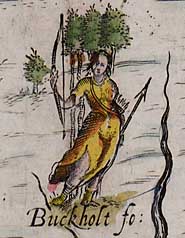|
|
Background to the project Jack Langton's research began with an examination of how the rise of the English coal industry first freed humans from dependence on the conversion of incoming solar energy through plants and animals by gaining access to the ‘fossilised solar energy’ stored in minerals, and the demographic, social and cultural effects of that human ecological transformation. Research into the role of industrial urbanisation in these changes was followed by an examination of what was being lost, combining work on the theory of peasantry and its supersession with an empirical study of Western Östergötland, 1800-1850. Fascination with how peasant societies ensured the equitable use and conservation of their finite common resource pools led him to consider how far such systems of resource allocation survived in early-modern Britain. This came to focus on forests and chases as bounded areas where special laws and a distinctive suite of interlocking institutions, attitudes, social structures and economic practices were inimical to modernisation. Surprised by the extent of their survival through early-modern times, he began to examine how they operated, and how, why and to what effect they had been created in medieval times, in an attempted counterpoint to the usual preoccupation with their eradication through disafforestation to enable modernisation. His progression away from economic development per se has run parallel to the increased attention across a wide spectrum of academic endeavour that is now given to ‘common-pool resource systems’, their ecology and sustainability (for work on which Elinor Ostrom won the 2009 Nobel Prize for Economics).
|
